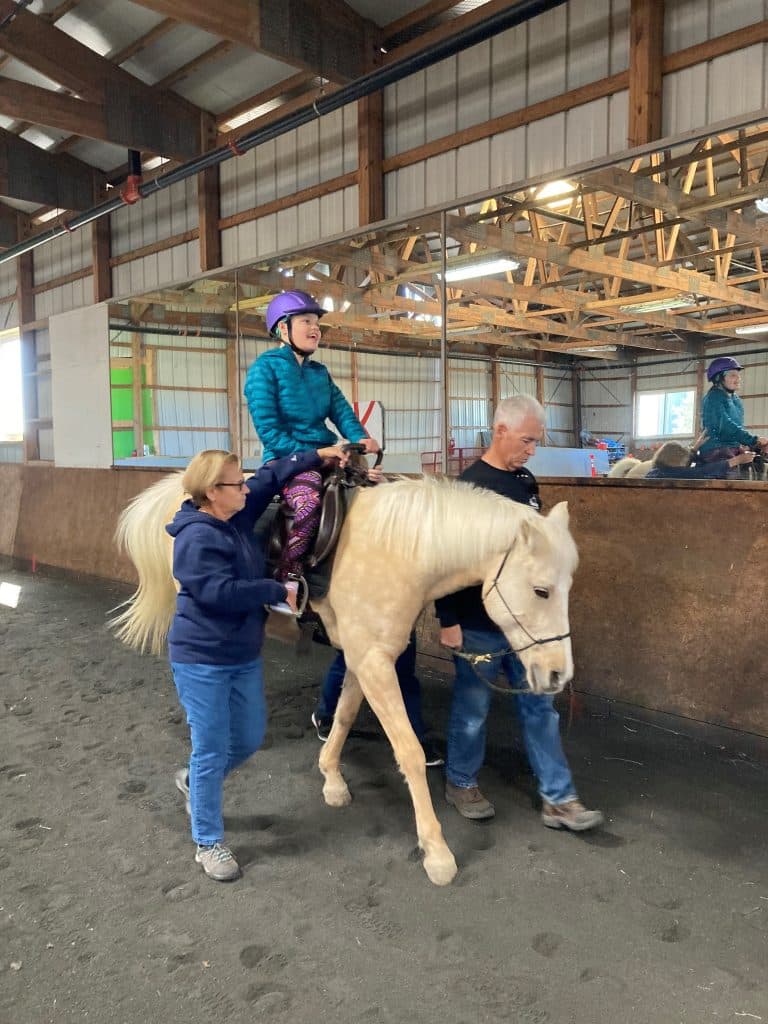DCF Capital Grant Supports Southern Delaware Therapuetic Riding Expansion
A new auxiliary barn, funded by a Delaware Community Foundation (DCF) grant, will enable Southern Delaware Therapeutic Riding (SDTR) to create office space for its incoming executive director and instructors.
SDTR’s board wants to increase the footprint of the nonprofit’s farm south of Milton. The $10,000 DCF grant is helping SDTR build a new auxiliary barn, allowing it to convert space in its main barn into new offices and additional storage space.
SDTR is one of 22 organizations awarded $254,823 from the DCF’s Capital Grants program. The program assists with the acquisition, final-stage design, construction, repair, renovation, rehabilitation, or other capital improvements of facilities, so nonprofits in all three counties can operate as efficiently and effectively as possible. Capital Grants support projects that will have a lasting, positive impact on the population or community served by the grantee organization.
SDTR provides equine-assisted services for individuals who have physical and/or mental disabilities. Founded in 1988, SDTR moved from farm to farm in southern Delaware until it used a Longwood Foundation grant to purchase its current farm in March 2015.

SDTR is working to assemble a structured leadership team, including hiring its first executive director. The organization plans to convert space in its main barn into offices where the executive director and instructors will conduct their day-to-day work.
“We’ve done a lot of physical improvements to the facility since we purchased the farm to enhance the experience for our participants and now we can enhance spaces for our instructors and volunteers,” SDTR President Scott Swingle said. “We felt like the additional (office) space is needed for more meaningful work to happen.”
To create more room in the main barn, SDTR will move tools, cleaning supplies and the shavings used to bed the horses’ stalls to the new auxiliary barn. This will open up space in the main barn for the planned offices and for storing riding equipment such as saddles and bridles.
A typical week for SDTR includes up to 60 participants taking part in equine-assisted services, with participants ranging in age from 5 years to 70 and over. Individuals typically visit the farm for lessons twice a month. Also, two Delaware schools that serve children with special needs bring their students to SDTR every week.
Equine-assisted services have many positive physical and mental outcomes, according to Kelly Boyer, SDTR’s program director.
“The horse’s gait replicates the movement of a human walking. So, you’re using similar muscles that humans use to walk, when you’re riding the horse,” Boyer said. “Riding the horse helps to physically increase muscle tone and strength. It also helps with balance, coordination and being able to use different limbs at different times.”
The positive mental outcomes of the lessons include learning how to form a partnership with the animals and the instructors. The participants practice their patience and communications skills to further enhance the partnerships and build their confidence, Boyer said.